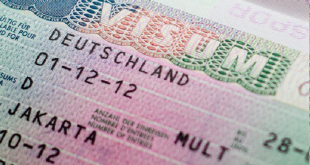Studying medicine in Germany gives students great opportunities within the field. However, it is not as easy as it seems. There are many obstacles and challenges, along with the entry requirements, that you’ll get to know when applying to study medicine in Germany.
Table of Contents
University entrance qualification
If you want to study in Germany, you’ll need a German higher education entrance qualification. This qualification allows you to study in Germany and is known as “allgemeine Hochschulreife” or “Fachhochschulreife”.
You can also check the list of requirements on German Academic Exchange Service (DAAD) to see if you’re eligible to study at universities in Germany. You can find out if you are eligible to study in Germany firstly by going to the “admission requirements” section. After that, you will be asked to choose the country in which you received your higher education entrance qualification.
Also learn our ranking of the best universities for international students in Germany.
What are the entry requirements for medicine study in Germany?
Firstly, you need to have very strong German language skills, demonstrated by strong test scores in German language exams such as Testdaf or DSH.
In cases where your German language skills are inadequate, you need not worry. You can simply register for a German language course and get your language to the required level to study medicine in Germany.
Other requirements to study medicine in Germany include:
- University entrance qualification / Public high school diploma.
- If you’re a non-EU student, you will need to make sure that your qualifications allow you to enter your chosen university. If not, you will have to take a one-year-long preparatory course known as Studienkolleg and pass the Feststellungsprüfung exam test.
- A strong knowledge of the English language in order to understand certain terms. Medical universities in Germany then require you provide your IELTS or TOEFL scores.
- Additionally, knowledge of the Latin language is also beneficial, but not mandatory.
- Excellent grades in biology, chemistry, and physics in high school, with a score of at least 60%. But more precisely, university requirements include you pass 12th grade in mainstream biology to study medicine in Germany.
- The ability to work well under stress. Undoubtedly, medical university programs are intensive and time-consuming. In fact, mandatory credit hours per semester can range from 25 to 30 in a week.
- International students will require a student visa and residence permit.
- The TestAS exam: some universities require TestAS exam results.
- Meanwhile, the Test for Medical Studies (TMS) exam is optional but may give you an advantage over other candidates as it showcases your academic abilities.
Applying to study medicine in Germany
It is best that you contact the international office of your chosen university early on (if possible, a year before starting your course). We advise that you do that in order to have enough time to gather all the necessary information on applications, procedures, and deadlines.
The number of applications to study medicine in Germany are significantly larger than the spaces available. For that reason, German universities arrange for a restricted admission system known as Clausus NC. There are two types of NC. However, in this case, it is centrally restricted NC.
That being said, in December 2017 the federal constitutional court in Germany ruled that the admission system was “partially unconstitutional”. In other words, the government will regulate the acceptance criteria to offer places. Either way, admission will differ from one university to another.
European students should then apply through the Foundation for University Admission (the Stiftung für Hochschulzulassung). But non-European students on the other hand need to check if the university they apply to is a member of Uni-Assist. If that’s the case, the application follows the Uni-Assist process.
You can learn about it in our article on university application in Germany.
Moreover, if the medical school isn’t a member of Uni-Assist, you should apply directly through the institution’s website. For the requirements, you should then check everything about medicine study that the institution has on its online platform.
University admission and deadlines
If you received your university entrance qualification from Germany or from a German school abroad, you will need to apply for higher education through the institution. The same applies as required for other subjects including pharmacy, veterinary medicine, and dentistry.
Non-EU students will have to inquire whether the university they have chosen is a member of the uni-assist. If that is the case, you can apply through the uni-assist approval organization. If not, then you must apply through the university that you have chosen. Additionally, your application will include relevant documents (For instance: public high school diploma)
Deadlines for applications will generally be around the 15th of July for winter semesters and the 15th of January for summer semesters.
For more information, check also this complete guide for Medicine Study in Germany.




 Aljawaz Your guide to study abroad
Aljawaz Your guide to study abroad






















